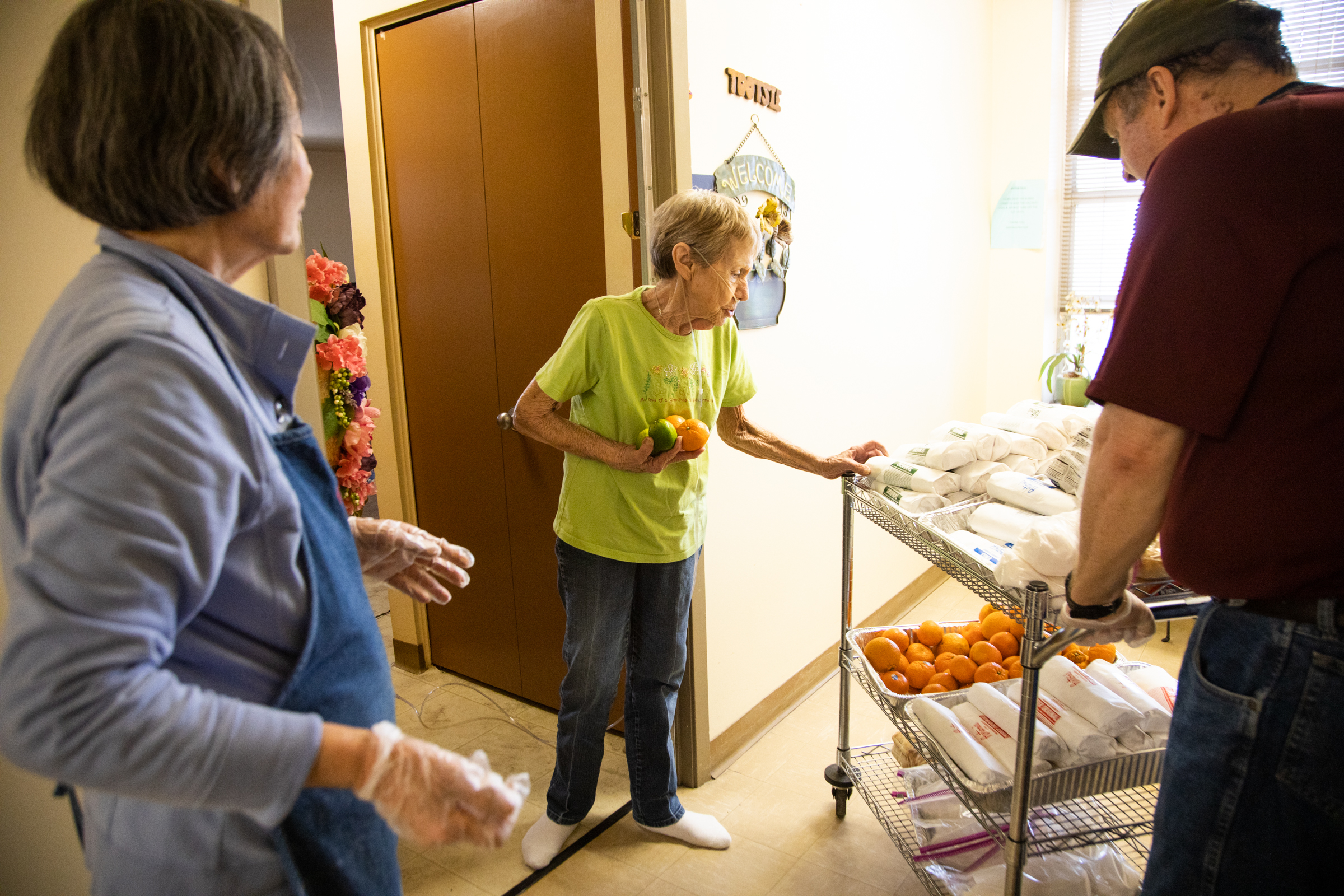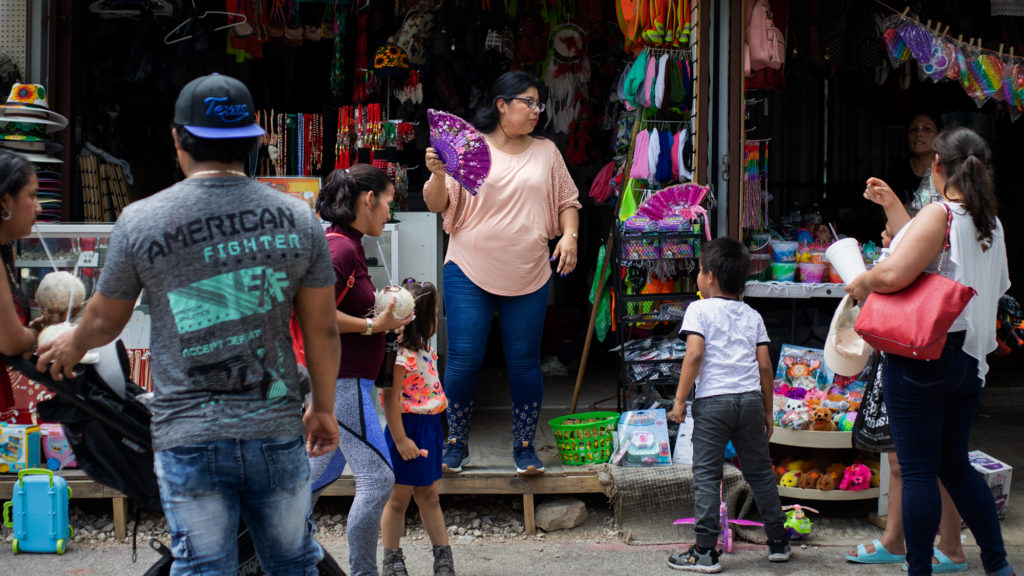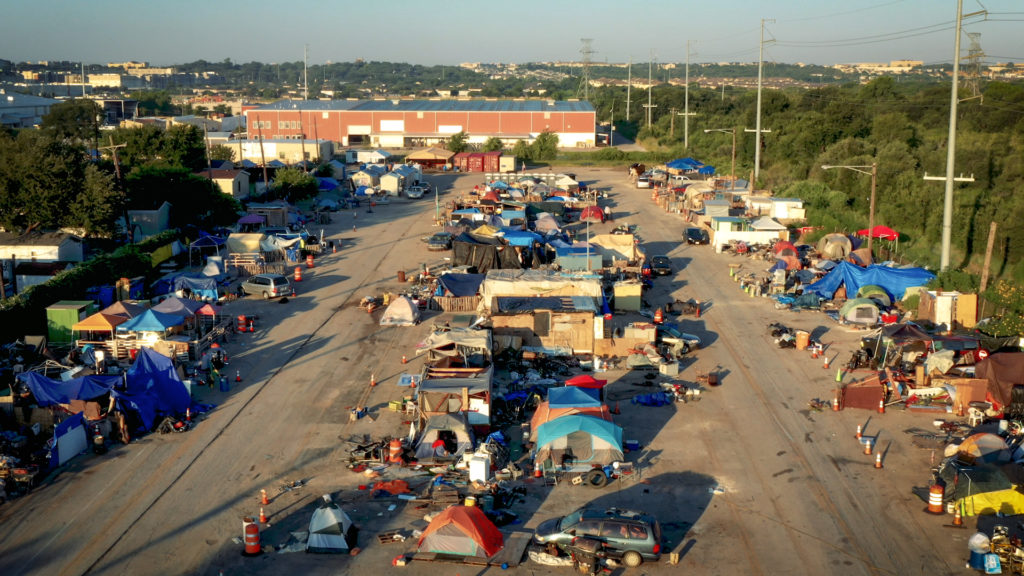The COVID-19 outbreak has suddenly and dramatically compromised nonprofits’ capacity to deliver services in this time of crisis. In a matter of days, nonprofit staff have shifted their service models, evacuated nonessential buildings, and developed solutions to problems they imagined only in hypothetical disaster scenarios.
For organizations fighting food insecurity, the pressure and urgency is especially acute — they function as the only reliable, affordable source of nourishment for many of their clients.
Many of these groups cater primarily to seniors, people with disabilities, and those surviving on limited incomes. Groups like Meals on Wheels, Mercy Brown Bag Program, and the Serafina Food Pantry keep the people in their communities fed, connected, and more stable. Knowing this, food-focused nonprofits are working harder than ever to keep service running as long as possible, and planning ahead for barriers that could crop up at any moment.
The first order of business: new safety protocols to prevent the spread of COVID-19 when volunteers handle food and make their deliveries. Today, these groups are putting out new fires and working to keep operations going. We spoke with several organizations across the country to find out how they’re adapting, what challenges are most pressing, and how people can help.
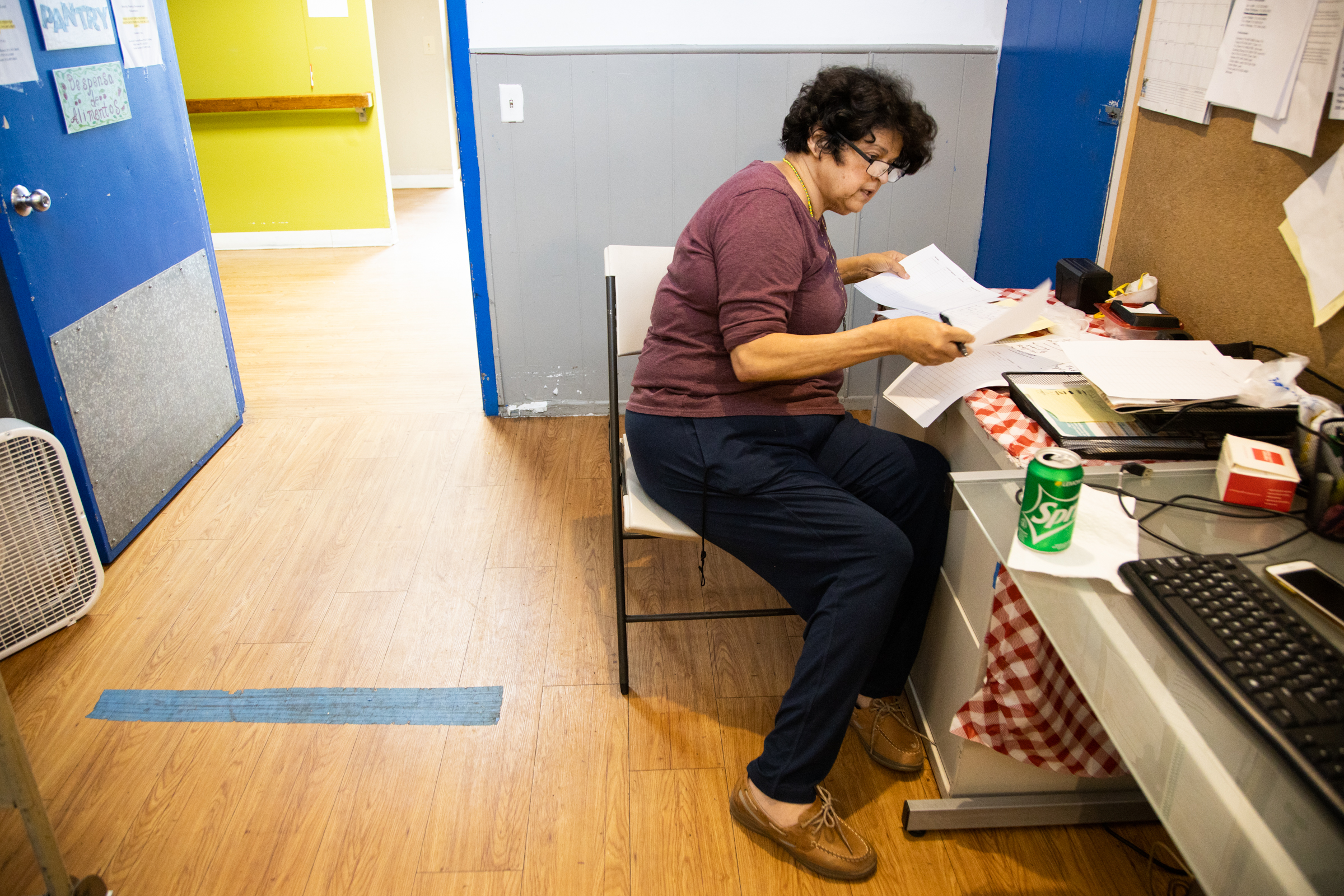
Farah Rivera organizes the list of residents who signed up to receive deliveries from the Serafina Food Pantry, which has been forced to switch to a delivery system to prevent people from congregating in large groups.
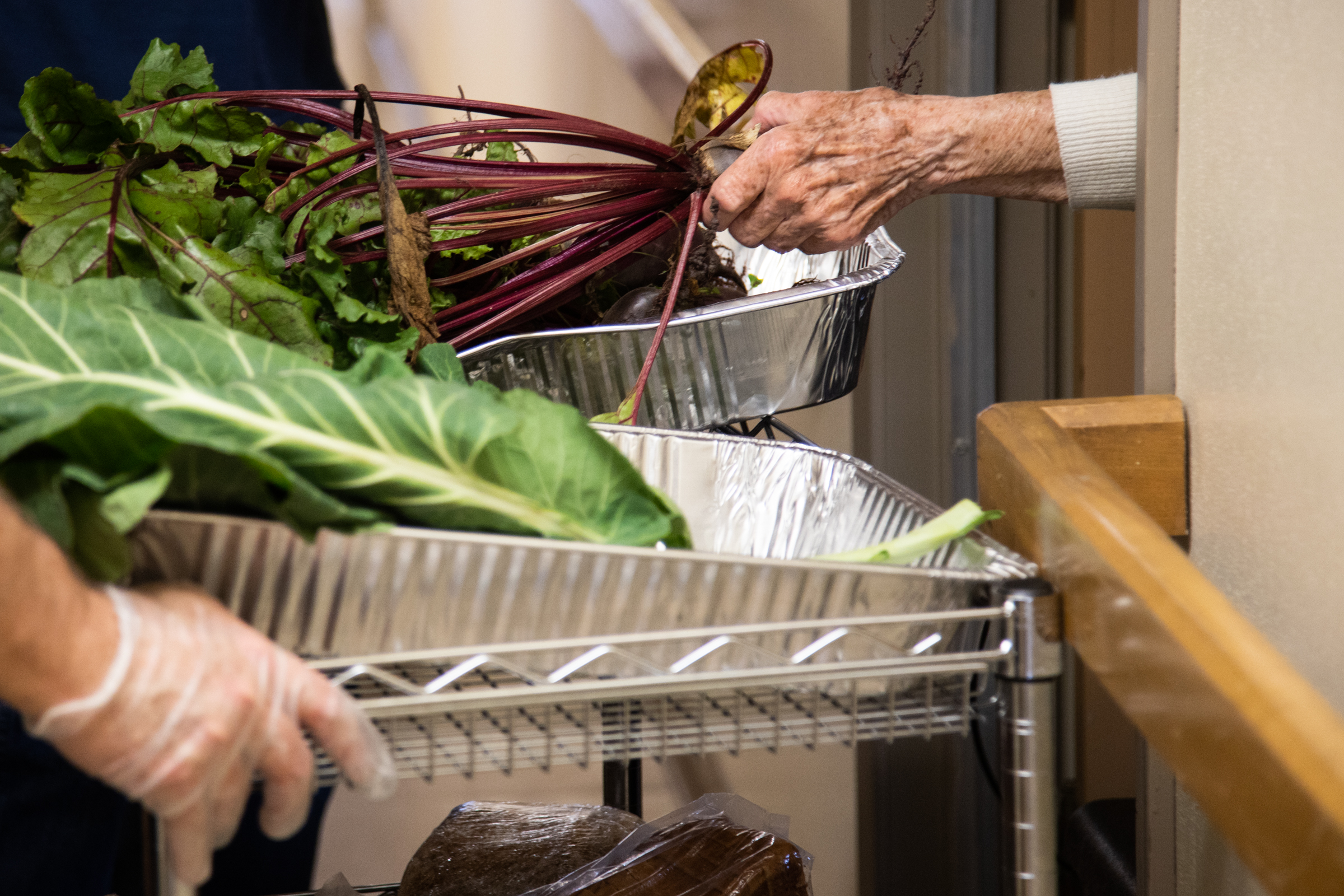
Volunteers wheel carts of food along all 16 floors of the RBJ apartment complex, a low-income housing development for seniors and people with disabilities.
Serafina Food Pantry
The Serafina Food Pantry appeared in our coverage last week, in a story about founder Farah Rivera, who successfully turned one room of her affordable housing complex in Austin into a food pantry that supplies hot meals and fresh food to neighbors in need. One week later, Rivera’s supply lines have all but dried up, volunteers are scarce, and demand has spiked.
The pantry in the Rebekah Baines Johnson apartment complex relies on donations from local restaurants, caterers, tech companies, and grocers that deliver leftover meals and nearly expired groceries. Large companies like Google and Facebook once delivered leftover lunches from their corporate cafeterias, but now everyone is working from home. Most restaurants in the area have closed or switched to take-out only, so they’re spread too thin to share. Yet Rivera’s getting calls from schools and social workers asking if she has anything she can pass along.
Rivera thinks she has two weeks’ worth of stock right now, but the outlook changes daily. She’s been reaching out to anyone she can think of who might be willing to donate. “I’ll take one can of tuna, or I’ll take an entire truckload,” she says, “I don’t care.”
Rivera fears for her fellow residents at the RBJ Center. “They are very low-income and very high-risk,” she says. Many are afraid to leave home and go to the store. Many struggle with technology, making delivery options difficult. And some are homebound due to physical limitations.
Rivera started the Serafina Food Pantry — and named it after her grandmother — because she believes food is medicine. “Don’t you realize that keeping people healthy is the first line of defense?” she asks. More than ever, she wants to give her neighbors healthy, vibrant foods, but the challenges are mounting.
To keep the Serafina Food Pantry running, Rivera needs volunteers who can collect supplies or make deliveries. She also needs donations of soups and other foods that require minimal cooking, as well as shampoo, dry shampoo, conditioner, toilet paper, and reusable bags. Contact Rivera directly at (512) 767-5046 to volunteer or offer to drop off donations.
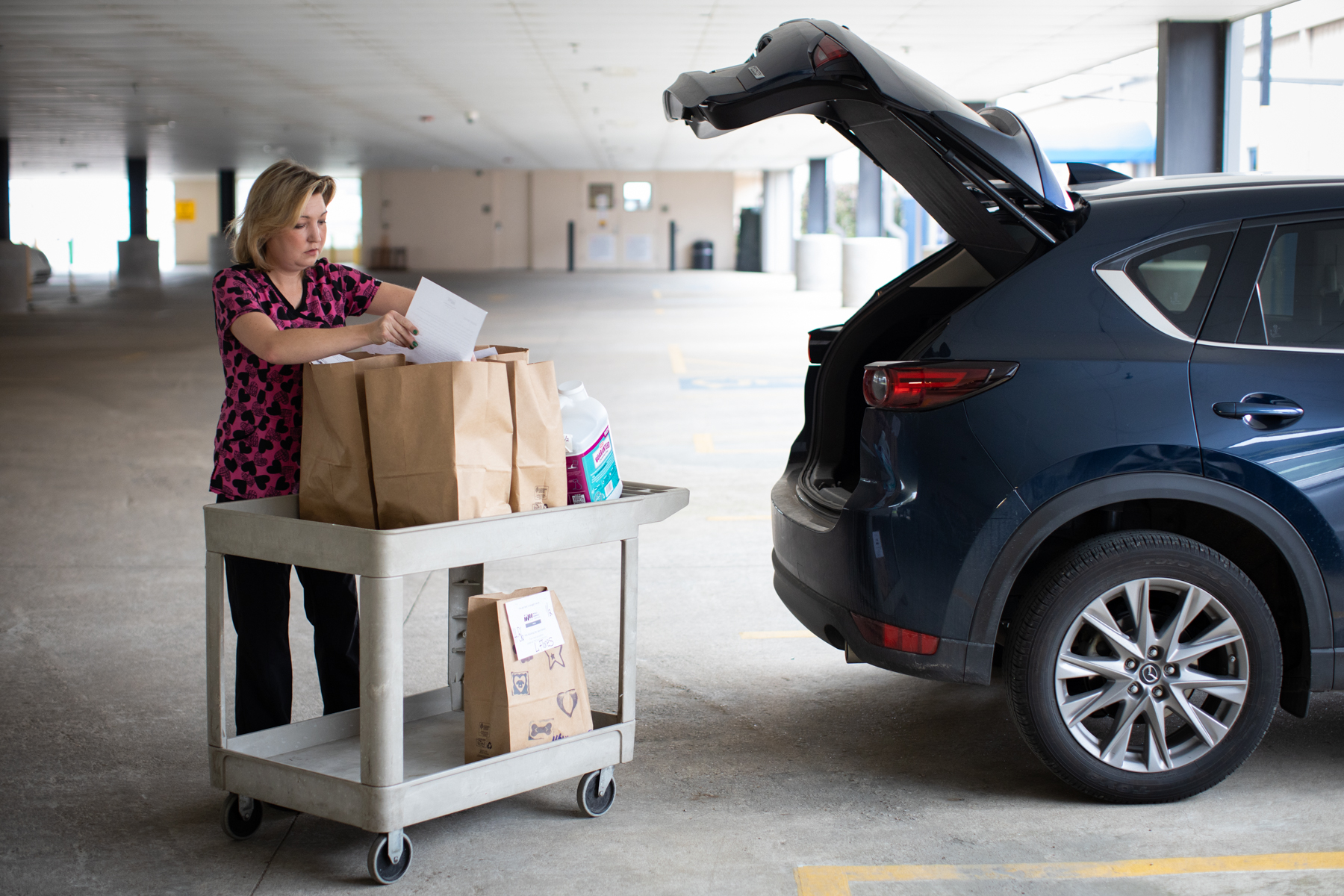
Volunteer Rose Hawkins places letters in bags of groceries at Meals on Wheels Central Texas in Austin on Saturday, March 14. The letters outline new delivery procedures and precautions against COVID-19. Volunteers are being told to place delivery items on a recipient’s doorstep, knock on the door, and then step back six feet before the door opens. Meals on Wheels also suspended new volunteer training until the end of March.
Meals on Wheels Central Texas
“Things change on an hourly basis,” says Thad Rosenfeld, vice president for communications at Meals on Wheels Central Texas. “But clients haven’t missed any meals yet, and we’re doing all we can in our power to make sure they don’t.”
On a typical day, Meals on Wheels Central Texas delivers approximately 2,500 meals to clients in and around Austin. Volunteers are an essential part of the organization’s service model, covering more than 90 percent of deliveries with their weekly assigned routes.
Thankfully, says Rosenfeld, many volunteers are showing up for their shifts, and others are filling in gaps for those who need to stay home. But if local or state authorities announce new quarantine measures — which could happen at any time — many Meals on Wheels clients will be left without a lifeline.
To prepare for that possibility, Meals on Wheels on Tuesday and Wednesday added five frozen meals to each delivery for every client. On Thursday, the organization expects two large shipments of shelf-stable meals. They plan to distribute 10 of these to each client in case conditions get worse and service is suspended. Food supplies, thankfully, look strong for now.
While Meals on Wheels needs a strong team of volunteers, they can’t expand their pool of helpers because there’s no time for required trainings or background checks. The organization wants to take on more clients — and they expect demand to grow — but they can’t sacrifice service to those they current serve.
How can people help most right now? Rosenfeld says monetary donations would go a long way. The shelf-stable meals they purchased this week cost $1.50 more per meal than what they typically make in their own kitchen. Visit the Meals on Wheels website to make a donation.
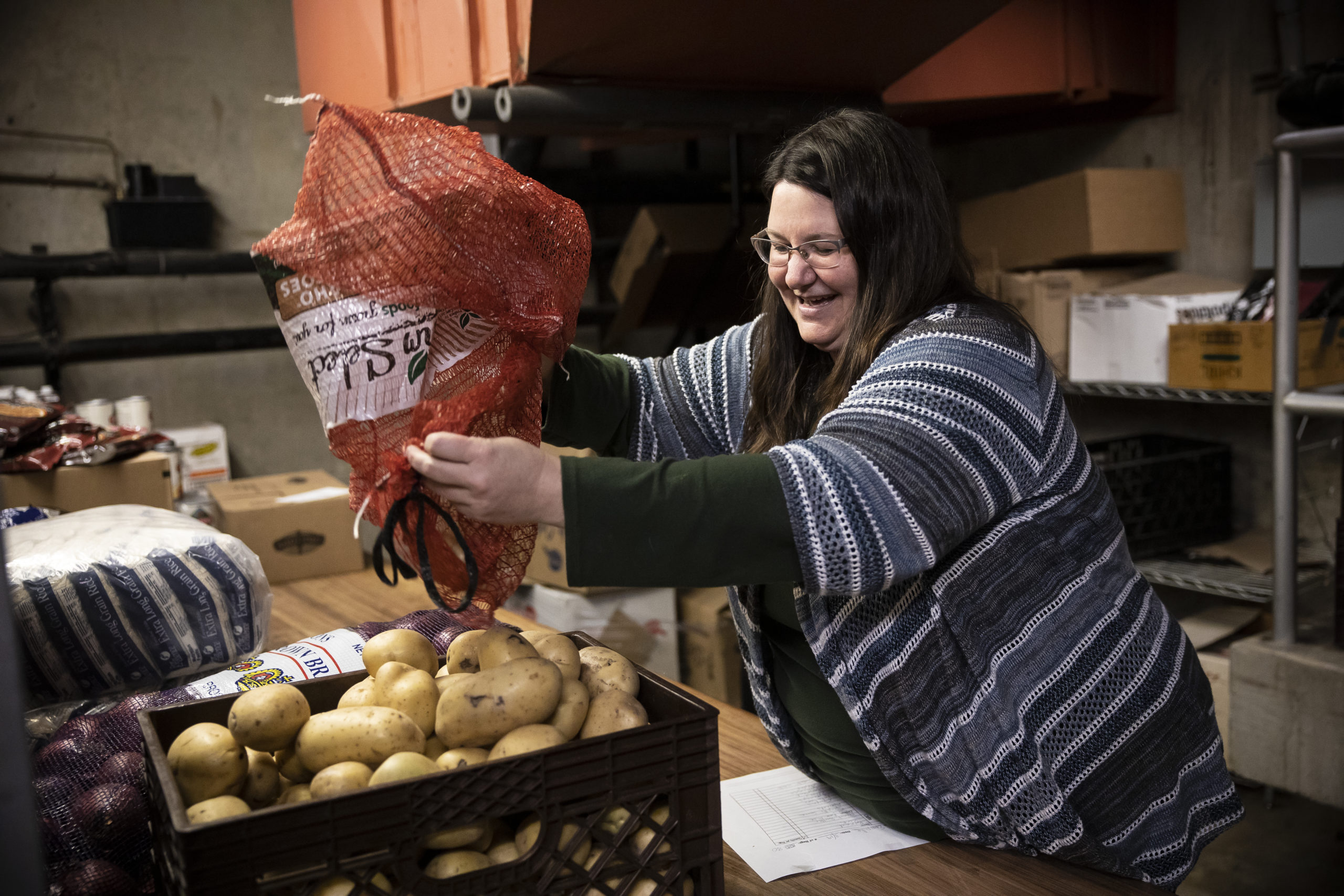
Krista Lucchesi prepares produce for bagging and distribution to seniors across Alameda County, CA. Lucchesi is director of Mercy Brown Bag Program, which provides groceries to thousands of seniors annually. The program relies primarily on senior volunteers. In the face of the COVID-19 outbreak, the program has had to continuously adjust to reconfigure its operations. “It’s like building an airplane as you’re taking off,” Lucchesi says.
Mercy Brown Bag Program
The Mercy Brown Bag Program in Oakland is a mostly volunteer-run organization that sorts, packs, and distributes groceries to seniors across Alameda County, California. Twice a month, the program provides groceries to nearly 70 locations across the county.
Mercy Brown Bag is a senior-to-senior program, meaning older volunteers play a huge role sorting, bagging, and moving groceries to partner sites. As the alarm over COVID-19 intensified last week, Mercy Brown Bag lost 98 percent of its volunteers.
Krista Lucchesi, Director of Mercy Brown Bag, says staff have found solutions for approximately 75 percent of their partners. To service the remaining 25 percent, they’re working out home-delivery routes — for the very first time — and trying to build Google Maps they can share with new, younger volunteers who are stepping up.
“It’s like building an airplane as you’re taking off,” Lucchesi says. “You’re like, okay, okay, but then something new happens and you need to adjust and keep going.”
The good news, Lucchesi says, is that younger people are reaching out and pitching in. “It’s been absolutely beautiful,” she says. “It feels like, instead of ‘Okay, boomer,’ it’s more like, ‘Are you okay, boomer?’ It makes me so happy because a lot of times the senior population is ignored, so it’s really a beautiful showing of support.”
What would help most right now? Lucchesi says Mercy Brown Bag is secure in terms of food supplies and finances, so she wants people to check on their elderly neighbors and make sure they’re okay. “Even if it’s a handwritten note you put on their doorstep,” she says. “We know there are so many more people out there who are not on our radar right now. We need everybody’s help to make sure people are all right. If you don’t have the resources yourself, let’s figure out a way to get them some food.”
Those who want to volunteer with Mercy Brown Bag, should email Krista at krista@mercybrownbag.org. Or follow the organization on Twitter or Instagram for updates on volunteer needs.
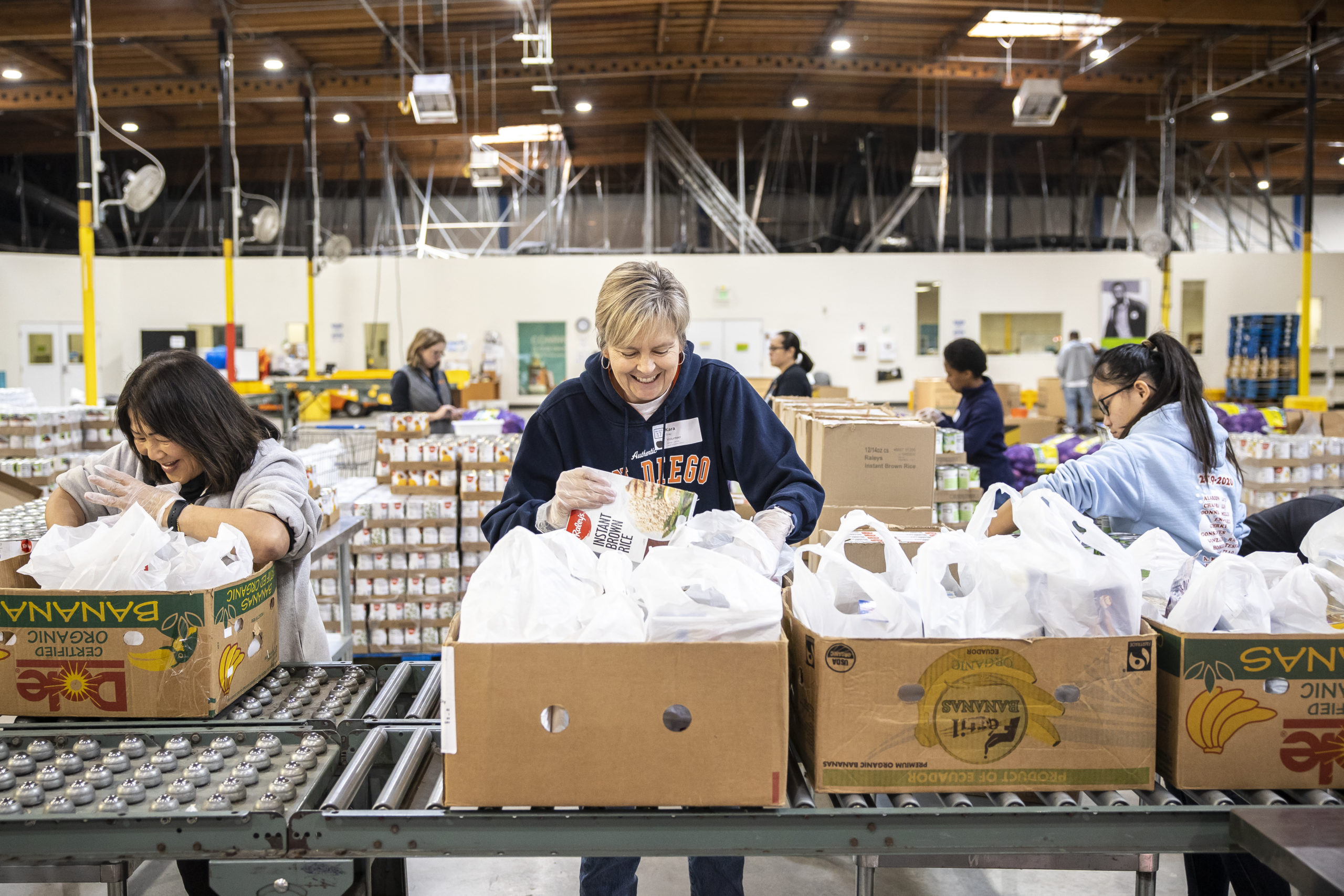
Kara Gray and other volunteers pack emergency bags at the Alameda County Community Food Bank in Oakland, CA. “I don’t feel sick or anything,” Gray says. “I have the time, and the traffic’s good now, so I figured I might as well. I signed up with a friend through this MeetUp a month ago, and then it morphed into this huge need.”
Capital Area Food Bank and Alameda County Community Food Bank
Because they serve huge populations as part of their model, larger centralized food pantries, like the Capital Area Food Bank in Washington, D.C., and the Alameda County Community Food Bank in California, have strong supply lines and robust volunteer support. But responding to the COVID-19 pandemic has required a rapid pivot to implement new protocols and approaches.
The Capital Area Food Bank in D.C. is providing only shelf-stable, bagged, and boxed “to-go” items. They service regional distribution hubs in the area, some of which have closed. But CAFB is working with the partners who remain open to reach as many clients as possible. This includes pop-up pantries around town.
The Alameda County Community Food Bank is shifting its focus to fulfill 10,000 emergency bags per week to meet the requests of partners and distributors. They’re shifting away from fresh produce to shelf-stable items that will keep longer.
“We’re trying to make sure that we have some shelf-stable things, like canned peaches,” says Ingrid Becker, Director of Community Engagement at ACCFB. “We have pasta sauce, tomato sauce. We have a protein, we have green beans, we have spaghetti. These are all things you can at least get by on for a little while.”
Becker says she’s grateful for an influx of volunteers who are working as quickly as possible to prep bags now in case the situation gets worse. “Within an hour, we had 50 people sign up, and we were ready to go,” she says. “We had a shift from 6pm to 9pm last night, and we managed to make 1600 bags in three hours.”
It’s a race against the clock for food security organizations like these, as they brace for the possibility that more people will need their services, while food supplies and volunteers may grow scarce. If you’re able to join the effort, such groups need help from the healthy and willing. Keep an eye out for specific needs among organizations in your community, and reach out if you can pitch in.
If you or someone you know is having trouble accessing food or groceries, visit findhelp.org to search for services in your area — for free, wherever you are.

